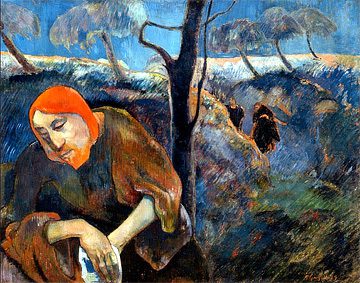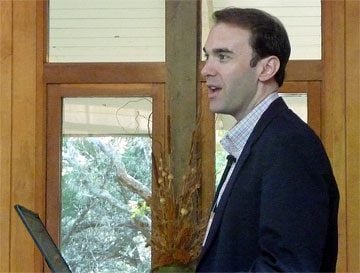Setting Up the Problem
According to the New Testament Gospels, Jesus fully expected that he would be tortured and killed. Yet he spoke of his death, not merely as something that would happen, but as something that must happen. So, for example, in Mark 8 we read, “Then he began to teach them that the Son of Man must undergo great suffering, and be rejected by the elders, the chief priests, and the scribes, and be killed, and after three days rise again” (8:31). On numerous occasions Jesus predicted his pending death in Jerusalem (Mark 9:31; Mark 10:33-34), yet he did nothing to prevent it. In fact, his actions in Jerusalem – cleansing the temple, failing to flee from those who sought to arrest him – if anything, propelled him to the cross. Yet the big question is: Why? Why did Jesus believe that it was necessary that he die?
This isn’t an easy question to answer because, though Jesus was clear about the inevitability and necessity of his death, he wasn’t nearly so clear about his reasons. His lack of clarity explains, among other things, the fact that his own disciples did not understand his predictions of his death. They were confused about what was going to happen and why. So if they didn’t figure out the reason for Jesus death – at least before it happened – how can we hope to discern Jesus’ intentions?
Jesus’ perspective on his death emerges from a few things he said prior to his death and well as something he did, something that serves as his ultimate explanation. I want to begin by looking at what Jesus said before examining this telltale action.

Out of Obedience to the Father’s Will
In the Gospel of John Jesus makes it clear that he is choosing to die. Nobody is forcing him to do it:
For this reason the Father loves me, because I lay down my life in order to take it up again. No one takes it from me, but I lay it down of my own accord. I have power to lay it down, and I have power to take it up again. I have received this command from my Father. (John 10:17-18)
Here, alongside Jesus’ claim that he freely gives up his life, is the observation that he has “received this command from [his] Father.” So, one major reason Jesus believed that he must be killed is that he also believed this to be the will of his Heavenly Father.
This observation is confirmed in the Garden of Gethsemane, where Jesus asks his Father to “remove this cup” from him. Yet, he adds, “not what I want, but what you want” (Mark 14:36). In other words, Jesus asks not to have to go to the cross, but he perceives this to be the will of his Father in heaven. Thus he offers up his life out of obedience.
Although this begins to answer the question of why Jesus thought his own death was necessary, it doesn’t tell us what Jesus thought he might be accomplishing through his death. To this issue I’ll turn in my next post.

